For Love of the Game
Driving hundreds of miles to E3 without a pass, or a plan? Check. Dueling on a Game Boy with a total stranger in a Japanese arcade? Check. Playing X-Com for two days straight? Check. Sure, games haven't driven us to kill anyone, but they sure have gotten us GameSpot editors to do some wacky things.
Design by Marty Smith
We've all heard the knee-jerk accusations about how games can cause people to do bad things. They're a negative influence on today's youth, like rap or heavy metal music and Dungeons & Dragons before them. As the true story behind what games actually do to people over time continues to materialize, the subject is being broached more delicately by the media. For example, earlier this year, the subject of the influence of violent video games versus the demand for personal accountability was the central theme of an episode of the hit show, Law & Order: Special Victims Unit, in which a young defendant claimed that a video game drove him to commit an act of real-life violence.
For argument's sake, we're going to spoil that episode for you: The young defendant's defense does not succeed. Nevertheless, it seems fair to say that games are influential on the people who play them. Games are such a compelling form of entertainment that can cause us to go to relative extremes in our everyday lives.
But is that wrong? We're going to give you a few cases to consider so that you can decide for yourself.
This isn't an article about violence in video games. It's a chance for us to consider some of the moments in our lives as game players that made us feel strongly about something that, in the grand scheme of things, is probably pretty trivial. These are cases in which games drove us to relative emotional extremes. This is both how and why we play.
"I caught glimpses of an approaching figure in my periphery. He leaned casually against the wall, lit a cigarette (flouting the "Engrish" sign), and started playing Street Fighter II Turbo on his GBA." -
"I called one of my friends and said: "We're going to E3. Tomorrow." He didn't argue." -
"And now he's in there yelling at the TV, using the kind of language that would cause an Army drill sergeant to blush." -
"On the one hand, torture such as this seemed appropriate for something out of Greek mythology. On the other hand, we had Samurai Shodown." -
"I had to get away from my computer, so I made myself take a walk around my Seattle neighborhood. But everywhere I looked, I asked myself what I would do if a sectoid started shooting out a window, or a dreaded chryssalid walked around the corner." -
"I think I just prefer to be a well-rounded game player rather than mastering one. But that was before we got into NFL Blitz." -
"The guy was a gaming polymath, but he was also something of a shadowy figure. For someone who had the time to invest in gaining all these records, he was rarely spotted--at least when I hung around the joint." -
"When I left at 5am, I had handed everyone their entrails at least once, and I felt like the next coming of General Erwin Rommel." -
After reading the lengths we have gone to in order to satisfy a gaming jones, what sorts of similar stories do you have to share? Been on a long road trip to a LAN party? Dueled in the arcades with a stranger? - Tell us your story
My first trip to Japan coincided pretty closely with the commercial release of the Game Boy Advance. Riding the Yamanote line to Akihabara, the world's video game mecca, I got a quick sense for the immense utility of the device. I'm not sure that being packed into the rattling car like a canned anchovy would have otherwise been so tolerable.
After arriving in Akihabara, I solicited directions to the Sega arcade, which was flanked by multitiered Laox electronics superstores. It became immediately apparent to me that the Japanese navigate by these monuments to capitalism rather than through the use of street names. Ascending the stairs of the arcade, I was struck by an overwhelming sense of reverence that might be more appropriate for a meeting with the Wailing Wall. Approaching the Virtua Fighter 2 cabinet, tucked in a corner of the fourth floor next to a "No Smorking" sign, I must have looked like a living version of the Ecstasy of St. Theresa.
After playing alone for a time, I caught glimpses of an approaching figure in my periphery. Rather than sidling up to one of the glowing arcade hits lined like penny candy in that glorious room, he leaned casually against the wall, lit a cigarette (flouting the "Engrish" sign), and started playing Street Fighter II Turbo on his GBA. Total badass. He could have walked 10 feet and played SFII: Hyper Fighting, but it seemed he was as transfixed by the device as I was.
I abandoned my game, halfway through an impassioned bout with Shun Di, and, at length, extricated my own Game Boy from the back pocket of my American blue jeans. I searched for eye contact, but all I received was a puff of gray smoke, coiling and uncoiling under the track lighting like a predatory snake.
The ensuing silence lasted long enough to end my bout with Shun Di. Finally, my would-be combatant spoke--or rather growled--in the inimitable fashion of Japanese men: "You want to play." His tone didn't rise appropriately to form a query. This was either assertion or command, and most likely both.
I wasn't sure he could see me nod in the affirmative. Without looking up and without pausing his game, the unusually tall man presented me with a link cable. My trembling hands had difficulty finding the mark.
When I chose Ken, and he chose Ryu, my adversary looked directly at me for the first time. Apparently aware of the irony, he smiled out of the side of his mouth that didn't house his cigarette. We connected. We began.
And he had his ass handed to him. He recoiled suddenly, violently yanking our Game Boys apart, and nearly wrenching mine from my blood-engorged fingertips. "You--are all Americans so strong?" Despite his discomposure, the cigarette remained glued to the side of his mouth. Coolly, I responded, "No. I am a weakling in my country." His jaw dropped, and a very foreign-sounding gasp escaped his lips, along with the Mild Seven cigarette. I had arrived.
If it hadn't been for that horse, I wouldn't have spent that year in college. Wait, that's Lewis Black. Sorry.
What I meant to say is: If I hadn't been on IRC at that precise moment, I'd never have gone to E3. The year was 1997. I was barely a month out of high school, working at a pharmacy for the summer, and playing stupid amounts of Quake until 5am every night. I still lived with my parents in western North Carolina at the time, and '97 was the first year E3 was held in Atlanta. My house was a mere three-hour drive from Atlanta. Coincidence or providence? You tell me.
The Internet was still a burgeoning resource for gaming information back then--lots of growing fan pages but hardly the organized global community you see today. (This sprawling site was itself only a year old at the time.) The previous year, I'd wowed some friends with videos I'd downloaded of Super Mario 64, postage-stamp-sized and running at no more than 15 frames per second. I was anticipating another year of absorbing E3 coverage in this manner when, literally two days before the show, I fatefully logged onto a particular, infamous gaming-related IRC channel, which shall remain nameless. As soon as I got on, a guy from California happened to mention that he had a couple of VIP passes to E3 and nobody to give them to. The next day he would be in Atlanta. I knew what I had to do.
I called one of my friends and said: "We're going to E3. Tomorrow." He didn't argue. We started scouring the metropolitan Atlanta area looking for any available lodging. If you've ever been to an E3, you know how fully the thing takes over its host city, and tens of thousands of out-of-town attendees don't leave a lot of empty hotel rooms. We finally found a spot in an awful fleabag motel in a less-than-savory part of town. We'd have to ride a bunch of buses to even get near downtown, where E3 was happening. But who cared? It was E3. My destiny was manifest in that hallowed convergence of games and geeks and sticky Atlanta heat.
Oh, and I was only 17 at the time. As you may know, E3 allows entry only to legal adults, which I very clearly was not. (Whether or not I'm much of an adult now is open to debate, but that's another story.) We had the passes, we had a place to stay, we knew how to get there--but would they let us in? Was it a ludicrous idea to drive all the way to Atlanta just to be turned away at the door? Do you even have to ask?
So, we went. Driving down was a slight ordeal for a teenager who'd never been anywhere of note, suddenly faced with merciless multilane freeways and lead-footed type A drivers. Anyway, we made it without incident, met up with some of the IRC folks (many of whom are now industry peers), and got the passes. The next day we headed to the convention center to brave the lines and attempt to register for the show. I don't even remember who I listed as my employer; I think I made something up. My heart beat just fine all morning, save one moment: when the lady taking my pass asked me, in a cheerful tone, "Are you sure you're 18?" I flashed my best cherubic, please-let-me-through smile and said "I think so." She was satisfied. I was in!
First descending the escalator into the sea of stimuli that is the E3 floor ranks as one of the most exciting moments of my life. A nerdy thing to say, sure, but why else would GameSpot continue to fund my employment? If you've never been to the show before, it's hard to convey the palpable wave of sight and sound that washes over you when you enter. That was the point when I went from being just another obsessed video game fan to someone who was actually involved.
It's no exaggeration to say that trip to E3 changed my life--I met people on the trip that eventually coordinated my initial freelance gig writing for this very site. I can justifiably say that if I hadn't "wasted" so much time online in my youth, I wouldn't be here right now. Tell your parents that the next time they yell at you to get off the computer.
"Motherf*****!"
Wait. It's 2am. Why is there someone screaming obscenities in my living room? And I mean screaming. A vicious torrent of bellowing, shrieking rage coming from the couch in my living room.
It's the fall of 1999. I'm living with my then-roommate and he's up late again, trying to finish off the last few missions of Driver for the PlayStation. We've been working on the game in tandem over the past week or so and, as the missions have gotten tougher, I've gradually lost interest. Not my roomie. If anything, his resolute nature, combined with an overall lack of sleep, has resulted in him being up way too late for way too many nights in a row, trying to finish up the last few stages of a game that neither of us really liked but felt oddly compelled to see through to the end.
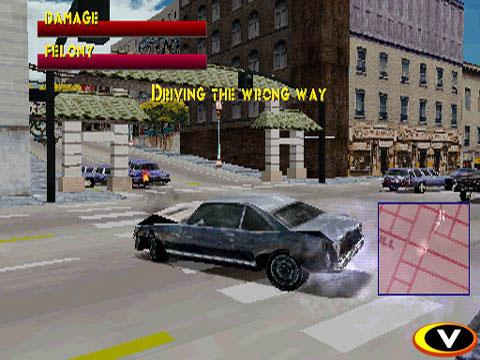
And now he's in there yelling at the TV, using the kind of language that would cause an Army drill sergeant to blush. The door of my bedroom is closed and there is a good-sized hallway between my room and the living room where he's sitting now, spewing filth at the Toshiba television. Halfway between fascinated and frightened, I place my ear against the door--not that I'm having trouble hearing him--to get the full audible effect of his fury. He's calling the game names now. He's actually calling the game names. Does he think Driver cares what he thinks about it?
My next thought: the neighbors. I wonder what they must be thinking. We've already been in trouble once with our apartment manager for making too much racket during our weekend Quake II online sessions--which typically begin on a Friday night and continue well into Sunday afternoon. But this isn't just stomping around and making fun of one another. This was pure, focused anger, directed at...a game.
I finally decide I need to see this for myself. Maybe he'll be embarrassed and quiet down if he realizes he woke me up. Maybe not. I sneak down the hallway and peek my head around the corner, getting a close-up view of him sitting on the couch. His hands grip the controller as if he were choking the life from them. I can see flecks of spittle erupt from his mouth as he chastises his onscreen avatar for missing a turn, or berates the police in the last level of the game for cheating.
Oh damn. He sees me. He turns my way and I can see his eyes, bloodshot and red from exhaustion and frustration.
"Ekberg, how's it going man?" I ask him, a little embarrassed now.
He just looks at me, "This game is pissing me off, Brad."
I nod and speak with as calm a voice as I can muster, "Yeah, I guess so."
Then I slink off to bed, hoping we don't get a call from the landlord in the morning.
While I've barely gone a day without playing games for at least an hour or two in the last 20 years or so, only a small number of games have ever caused me to become obsessive. For example, when I was about 13, a friend of mine introduced me to a computer game called Dune II. It was like nothing I'd ever played before. Of course, the game went on to become the grandfather of the RTS genre, which continues to be popular more than a decade later. I remember Dune II for being the first game that I ever played for an entire day, nonstop. I literally had this day where I woke up early in the morning, started playing Dune II, took a few bathroom breaks and maybe ate something at some point, and eventually went to sleep late at night. To the untrained eye, I was slouched over a computer with bloodshot eyes and without a care in the world. But in my reality, I was fighting and I was winning. It was incredible and it was worth it. I clearly remember the feeling, partly because I've experienced it many other times since then.

Samurai Shodown was something else entirely. I'd been playing Street Fighter II and its upgrades, as well as Mortal Kombat and Mortal Kombat II during my high school years, when along came Samurai Shodown and turned me from being a NeoGeo hater into a hardcore fan. One day I was playing Mortal Kombat II, when I saw this amazing-looking fighting game on the machine next to mine. I was gawking at a fight between this grizzled old samurai (Jubei) and a big, fat punk-rocker-looking guy (Earthquake), and it was amazing. I glanced back at my screen only to realize that I'd pretty much tuned out and lost an entire round to the computer without even fighting back.
So it was later that I learned that a friend of mine from school actually bought a NeoGeo and this game. There was no way I could afford that kind of money (about $800, all told--and well worth every penny), so I started pretty much begging this guy to loan me the system and the game for a weekend...just to give me a little time alone with it. Another obsessive friend of mine and I finally got the game--but, for whatever reason, we only got one controller. On the one hand, torture such as this seemed appropriate for something out of Greek mythology. On the other hand, we had Samurai Shodown. On a Japanese NeoGeo, which didn't censor the blood and ruin the damn game. Man, what a day.
We traded off matches for some insane number of hours, and recorded much of what we played on VHS tapes, which we'd later play back when we no longer had access to the game. We even recorded the game's music onto an audio cassette to listen to it whenever we couldn't play. I later started studying Japanese, at least in part so that I could understand the dialogue in that game. And when I had the opportunity to go to Japan as sort of this summer school thing, I made it my mission to return to the States with a NeoGeo of my own. I pretty much smuggled the thing back in my suitcase, hiding my inexplicable shame from my fellow students. There was no way I could justify what I was doing with that big old, ridiculously expensive game system.
Best money I ever spent and likely ever will.
It's hard to think of 1994 as ancient history, but it is, because Internet had yet to really take off back then. So prior to the advent of the World Wide Web and sites such as GameSpot, gamers such as me had to make due with Usenet, which was sort of like a universal message board system that only hardcore geeks and college kids used (or basically the only people who were on the Internet back then). But the great thing about Usenet is that everyone who was on the Internet used it, so you had huge discussions with lots and lots of people, not to mention a gazillion different threads. And if you were cooler than cool, you hung out on comp.sys.ibm.games.strategic, which was where it was all at.
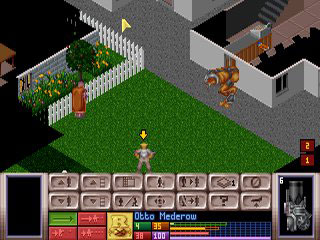
Anyway, in the summer of 1994, comp.sys.ibm.games.strategic suddenly became dominated, and I mean dominated, by discussion of a game called X-Com, which was published by MicroProse. No one had heard anything about it previously, and then overnight it became the only thing anybody was talking about. It was like the Borg had come to Usenet and assimilated everyone with this invasive strategy game. Since I was a huge strategy game fan, not to mention a worshiper of MicroProse, I went out and bought it. About 48 hours later, I finally forced myself to get away from my computer. My eyes were strained from staring at the monitor nonstop for nearly two days. My neck hurt because of bad posture. My hand was sore because of the repetitive stress of pushing a mouse around constantly. But I was enthralled.
I had to get away from my computer, so I made myself take a walk around my Seattle neighborhood. But everywhere I looked, I asked myself what I would do if a sectoid started shooting out a window, or a dreaded chryssalid walked around the corner. I wondered if I could maybe jump a fence if I needed to get away from snakemen. It was completely surreal; I had been completely absorbed into a game like never before. And frankly, no game has come quite close since. So when you hear people like me complain that they don't make games like they used to, believe it.
When it comes to games, I'm not the most competitive person in the world. I think I just prefer to be a well-rounded game player rather than mastering one. But that was before we got into NFL Blitz. Introducing an NFL Blitz machine into this office led to nonstop competitive battles. Vince's constant taunting and extreme competitive streak must have rubbed off on me, because I eventually became hell-bent on being the best.
At E3 that year, Midway announced it was going to have an NFL Blitz tournament. E3 is always a busy place, but this was one thing that I definitely had to make time for. Considering it was an open tournament, most of the people I faced were real chuckleheads. They had no idea what was going on, and they couldn't figure out how to play the game at all. It was insane. I skated through most of the competition, eventually getting to my first real game, where I took out Ryan Mac Donald in what I remember as a fairly one-sided affair (usually our games are much closer). We eventually got down to the semifinals, where I had to play against Kraig Kujawa, then of EGM. This was back when we communicated on a somewhat official level, so I had heard plenty of word about how good he was. His game was sharp, and actually, he was the toughest opponent I'd face in the tournament. The final game was sort of anticlimactic. I don't remember who the opponent was, but I distinctly remember that he only had one dimension to his game. It was a cakewalk, I was the winner, and that was the end of that.
I was never really a big tournament player. I've always been into playing against people, but I always felt that raising the stakes, by betting on a game or playing for a prize, sort of took away from the purity of the game. But there's something to be said for being the best and performing under pressure. That day, I went on to beat one of the guys that developed the game. Then Vince came around a few minutes after that and, well, he absolutely crushed me. So you can't win them all, I guess, but I won the ones that mattered.
There was a guy at my college who owned every arcade machine in Squires Student Center. Not owned as in possessed, but owned as in dominated. If you scrolled to the top score page for any given game in the place, you could pretty much bet that you'd find his initials up there: ATK, ATK, ATK. He usually had a stranglehold over the top two or three positions on every game in the entire place. He had pinball high scores, Time Crisis 2 high scores, Dead or Alive 3, and Soul Calibur rankings. Even the Ms. Pac-Man machine bore his mark. The guy was a gaming polymath, but he was also something of a shadowy figure. For someone who had the time to invest in gaining all these records, he was rarely spotted--at least when I hung around the joint.
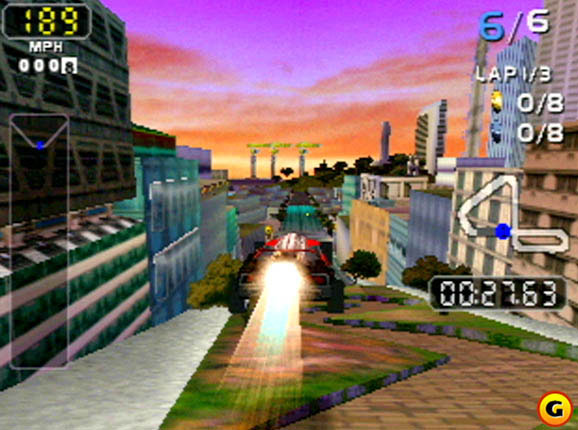
This made our dueling over the San Francisco Rush 2049 machine all that more interesting. For those who never played it in the arcade, SFR2049 machines had a telephone pad attached to them that allowed you to punch in a code to save your records, high scores, and your unlocked cars in between gaming sessions. This also allowed the machines to collect more records than would normally be possible, because for each of the five tracks in the game, it would rank you on lap time, overall time, the number of hidden coins found on each track, and another category, which I believe was either total wins or total mileage for the track.
But anyway, we fought for the longest time for dominance of the machine. I came in to play, set a new lap record or two, then clocked off for a couple of days, only to return to find that my previous records had been bested. So then the whole cycle would start over again. Since the top times had ghost laps on the machine for other players to race against, we were always analyzing each other's strategies and trying to find new shortcuts or techniques to shave tenths of seconds off our times. We jousted this way for most of the year, during which I spent around $700 (at 75 cents a play) and racked up around 3,500 miles on the machine, until finally I had the top slot in each record category on each of the five tracks.
And that's pretty much the story. There wasn't a climactic duel at sundown for the title of Virginia Tech's Ultimate San Francisco Rush 2049 Player, or anything like that. It's a bizarre experience, though, to have that kind of sustained competitive experience with someone in such close physical proximity to you without ever actually meeting them, let alone seeing them. Something about it reminds me of the chess match Theo Theodorakis plays against his unknown opponent in The Westing Game. In the age of ubiquitous online support for games, the notion of going to a physical location, especially to play games, seems almost quaint. But it's bizarre experiences like this that make me miss the arcade culture.
So, I was 16 years old, and I was going to my first Clan party. I'd been to standard-issue LAN parties aplenty for the last several years, and the drill was always the same: play Marathon Infinity and Spaceward Ho! until my eyes bleed, chug a twofer of Jolt, bolt down a take-and-bake pizza, and continue to play until the clock strikes 6am or my PowerCenter's hard drive becomes corrupted, whichever would come first.
This was a different deal, though. I'd been playing Myth: The Fallen Lords religiously for the last year or so for no fewer than three hours a day. I spent a great deal of that time bumming around with a loose-knit group of dudes called Clan Plaid, or #CP# for short, trying to make friends, influence people, and find an "in." I paid for an ISDN connection so I could host decent "keep across the border" territory games (which were #CP#'s bread and butter). I offered to help out in the administration of their tournaments and beta-test their first rudimentary home-brewed maps. Basically, I was the very model of a modern major wannabe for nine months straight. It worked, finally: I was admitted to the sacred brotherhood of Myth nerds, and given an invitation to the very first #CP# gathering. Though I was the youngest member of the Clan, I would be able to greet the seniors in person while my tag was still drying.
The party was located at someone's house near Lake Tahoe, about an hour and a half from my house. It was snowing like crazy. After some skillful negotiation, I was able to borrow my mom's Jeep Grand Cherokee. I stuck my bulky computer rig into the back, picked up 12 liters of Big J, and hit the road. I had no idea what was in store, and I had only been driving for a few months, but I was cautiously optimistic. This was really important, and I had to make a good impression.
And I did. Sure, I showed up three hours later than I thought I would, after taking a quick detour into an icy riverbed, but I made it. One of my buddies from online answered the door. I didn't recognize his look or his syntax (he didn't laugh nearly as much in real life as he did on a keyboard), but as soon as I plugged into the LAN, all of these paltry details melted away. These guys weren't chubby computer engineers and stuttering network consultants--they were my brothers, and they fought like demons. I was in my element, though, and most of them couldn't keep up with my actions on the battlefield. I found that the Internet's ever-present pall of latency had obfuscated many of their weaknesses. Ethernet, on the other hand, constituted a state of nature.
When I left at 5am, I had handed everyone their entrails at least once, and I felt like the next coming of General Erwin Rommel. I went to many more gatherings after that, but the certainty of my invincibility never really returned, no matter how many players I mulched or how far I advanced up in the rankings. Myth sickened and died; Bungie sold out; I sold my Mac clone and got a more practical laptop for college. I forgot. Casualty.
I'm seven years older now. I have a job working with video games, and everyone I know loves them. I love them myself again--yes, almost in spite of myself. But I'm just not sure how to stoke that fire again.
You've heard about how games have driven us to extremes or silly behavior. Do you have any of your own stories to share? Tell us about it on the forums by clicking the link below!
Got a news tip or want to contact us directly? Email news@gamespot.com
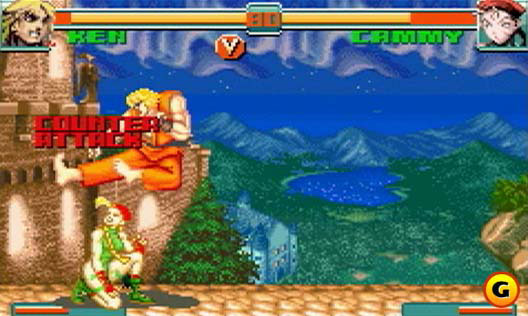
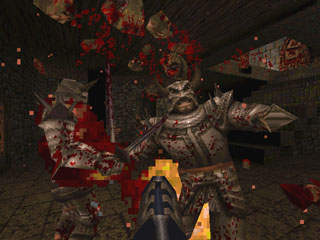
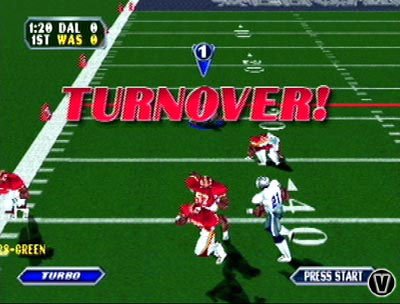
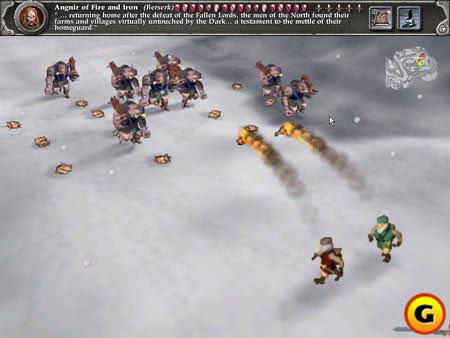
Join the conversation